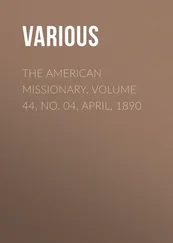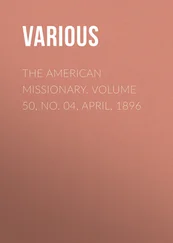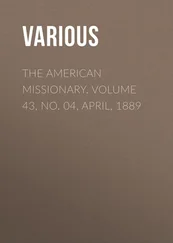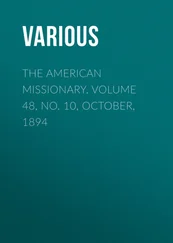Elizabeth Ellet - The Women of The American Revolution, Vol. 1
Здесь есть возможность читать онлайн «Elizabeth Ellet - The Women of The American Revolution, Vol. 1» — ознакомительный отрывок электронной книги совершенно бесплатно, а после прочтения отрывка купить полную версию. В некоторых случаях можно слушать аудио, скачать через торрент в формате fb2 и присутствует краткое содержание. Жанр: foreign_antique, foreign_prose, на английском языке. Описание произведения, (предисловие) а так же отзывы посетителей доступны на портале библиотеки ЛибКат.
- Название:The Women of The American Revolution, Vol. 1
- Автор:
- Жанр:
- Год:неизвестен
- ISBN:нет данных
- Рейтинг книги:5 / 5. Голосов: 1
-
Избранное:Добавить в избранное
- Отзывы:
-
Ваша оценка:
- 100
- 1
- 2
- 3
- 4
- 5
The Women of The American Revolution, Vol. 1: краткое содержание, описание и аннотация
Предлагаем к чтению аннотацию, описание, краткое содержание или предисловие (зависит от того, что написал сам автор книги «The Women of The American Revolution, Vol. 1»). Если вы не нашли необходимую информацию о книге — напишите в комментариях, мы постараемся отыскать её.
The Women of The American Revolution, Vol. 1 — читать онлайн ознакомительный отрывок
Ниже представлен текст книги, разбитый по страницам. Система сохранения места последней прочитанной страницы, позволяет с удобством читать онлайн бесплатно книгу «The Women of The American Revolution, Vol. 1», без необходимости каждый раз заново искать на чём Вы остановились. Поставьте закладку, и сможете в любой момент перейти на страницу, на которой закончили чтение.
Интервал:
Закладка:
Onward, however, step by step, the Monarch and his Ministry – he, if possible, more infatuated than they – advanced in the career of tyrannical folly. Remonstrance was vain. They could not be persuaded that it would ever become resistance. In 1769 and 1770, the crisis was almost reached. Five years of folly had done it all. In the former of these years, the lovers were re-united, Mr. Reed returning on an uncertain visit to England. He found everything, but her faithful affection, changed. Political disturbance had had its usual train of commercial disaster; and Mr. De Berdt had not only become bankrupt, but unable to rally on such a reverse in old age, had sunk into his grave. All was ruin and confusion; and on the 31st of May, 1770, Esther De Berdt became an American wife, the wedding being privately solemnized at St. Luke's Church, in the city of London.
In October, the young couple sailed for America, arriving at Philadelphia in November, 1770. Mr. Reed immediately changed his residence from Trenton to Philadelphia, where he continued to live. Mrs. Reed's correspondence with her brother and friends in England, during the next five years, has not been preserved. It would have been interesting, as showing the impressions made on an intelligent mind by the primitive state of society and modes of life in these wild Colonies, some eighty years ago, when Philadelphia was but a large village – when the best people lived in Front street, or on the water side, and an Indian frontier was within an hundred miles of the Schuylkill. They are, however, all lost. The influence of Mrs. Reed's foreign connection can be traced only in the interesting correspondence between her husband and Lord Dartmouth, during the years 1774 and 1775, which has been recently given to the public, and which narrates, in the most genuine and trustworthy form, the progress of colonial discontent in the period immediately anterior to actual revolution. In all the initiatory measures of peaceful resistance, Mr. Reed, as is well known, took a large and active share; and in all he did, he had his young wife's ardent sympathy. The English girl had grown at once into the American matron.
Philadelphia was then the heart of the nation. It beat generously and boldly when the news of Lexington and Bunker Hill startled the whole land. Volunteer troops were raised – money in large sums was remitted, much through Mr. Reed's direct agency, for the relief of the sufferers in New England. At last, a new and controlling incident here occurred. It was in Philadelphia that, walking in the State House yard, John Adams first suggested Washington as the National commander-in-chief; and from Philadelphia that in June, 1775, Washington set out, accompanied by the best citizens of the liberal party, to enter on his duties. 4
Mr. Reed accompanied him, as his family supposed, and as he probably intended, only as part of an escort, for a short distance. From New York he wrote to his wife that, yielding to the General's solicitations, he had become a soldier, and joined the staff as Aid, and Military Secretary. The young mother – for she was then watching by the cradle of two infant children – neither repined nor murmured. She knew that it was no restless freak, or transient appetite for excitement, that took away her husband; for no one was more conscious than she, how dear his cheerful home was, and what sweet companionship there was in the mother and her babes. It was not difficult to be satisfied that a high sense of duty was his controlling influence, and that hers it was "to love and be silent."
At Philadelphia she remained during Mr. Reed's first tour of duty at Cambridge; and afterwards, in 1776, when being appointed Adjutant-General, he rejoined the army at New York. In the summer of that year, she took her little family to Burlington; and in the winter, on the approach of the British invading forces, took deeper refuge at a little farmhouse near Evesham, and at no great distance from the edge of the Pines.
We, contented citizens of a peaceful land, can form little conception of the horrors and desolation of those ancient times of trial. The terrors of invasion are things which nowadays imagination can scarcely compass. But then, it was rugged reality. The unbridled passions of a mercenary soldiery, compounded not only of the brutal element that forms the vigor of every army, but of the ferocity of Hessians, hired and paid for violence and rapine, were let loose on the land. The German troops, as if to inspire especial terror, were sent in advance, and occupied, in December, 1776, a chain of posts extending from Trenton to Mount Holly, Rhal commanding at the first, and Donop at the other. General Howe, and his main army, were rapidly advancing by the great route to the Delaware. On the other hand, the river was filled with American gondolas, whose crews, landing from time to time on the Jersey shore, by their lawlessness, and threats of retaliation, kept the pacific inhabitants in continual alarm. The American army, if it deserved the name, was literally scattered along the right bank of the Delaware; Mr. Reed being with a small detachment of Philadelphia volunteers, under Cadwalader, at Bristol.
Family tradition has described the anxious hours passed by the sorrowing group at Evesham. It consisted of Mrs. Reed, who had recently been confined, and was in feeble health, her three children, an aged mother, and a female friend, also a soldier's wife: the only male attendant being a boy of fourteen or fifteen years of age. If the enemy were to make a sudden advance, they would be entirely cut off from the ordinary avenues of escape; and precautions were taken to avoid this risk. The wagon was ready, to be driven by the boy we have spoken of, and the plan was matured, if they failed to get over the river at Dunk's or Cooper's Ferry, to cross lower down, near Salem, and push on to the westward settlements. The wives and children of American patriot-soldiers thought themselves safer on the perilous edge of an Indian wilderness, than in the neighborhood of the soldiers who, commanded by noblemen – by "men of honor and cavaliers," for such, according to all heraldry, were the Howes and Cornwallises, the Percies and Rawdons of that day – were sent by a gracious monarch to lay waste this land. The English campaigning of our Revolution – and no part of it more so than this – is the darkest among the dark stains that disfigure the history of the eighteenth century; and if ever there be a ground for hereditary animosity, we have it in the fresh record of the outrages which the military arm of Great Britain committed on this soil. The transplanted sentimentalism which nowadays calls George III. a wise and great monarch, is absolute treason to America. There was in the one Colony of New Jersey, and in a single year, blood enough shed, and misery enough produced, to outweigh all the spurious merits which his admirers can pretend to claim. And let such for ever be the judgment of American history.
It is worth a moment's meditation to pause and think of the sharp contrasts in our heroine's life. The short interval of less than six years had changed her not merely to womanhood, but to womanhood with extraordinary trials. Her youth was passed in scenes of peaceful prosperity, with no greater anxiety than for a distant lover, and with all the comforts which independence and social position could supply. She had crossed the ocean a bride, content to follow the fortunes of her young husband, though she little dreamed what they were to be. She had become a mother; and, while watching by the cradle of her infants, had seen her household broken up by war in its worst form – the internecine conflict of brothers in arms against each other – her husband called away to scenes of bloody peril, and forced, herself, to seek uncertain refuge in a wilderness. She too, let it be remembered, was a native-born Englishwoman, with all the loyal sentiments that beat by instinct in an Englishwoman's heart – reverence for the throne, the monarch, and for all the complex institutions which hedge that mysterious oracular thing called the British Constitution. "God save the king," was neither then, nor is it now, a formal prayer on the lips of a British maiden. Coming to America, all this was changed. Loyalty was a badge of crime. The king's friends were her husband's, and her new country's worst enemies. That which, in the parks of London, or at the Horse-Guards, she had admired as the holiday pageantry of war, had become the fearful apparatus of savage hostility. She, an Englishwoman, was a fugitive from the brutality of English soldiers. Her destiny, her fortunes, and more than all, her thoughts, and hopes, and wishes, were changed; and happy was it for her husband that they were changed completely and thoroughly, and that her faith to household loyalty was exclusive.
Читать дальшеИнтервал:
Закладка:
Похожие книги на «The Women of The American Revolution, Vol. 1»
Представляем Вашему вниманию похожие книги на «The Women of The American Revolution, Vol. 1» списком для выбора. Мы отобрали схожую по названию и смыслу литературу в надежде предоставить читателям больше вариантов отыскать новые, интересные, ещё непрочитанные произведения.
Обсуждение, отзывы о книге «The Women of The American Revolution, Vol. 1» и просто собственные мнения читателей. Оставьте ваши комментарии, напишите, что Вы думаете о произведении, его смысле или главных героях. Укажите что конкретно понравилось, а что нет, и почему Вы так считаете.












